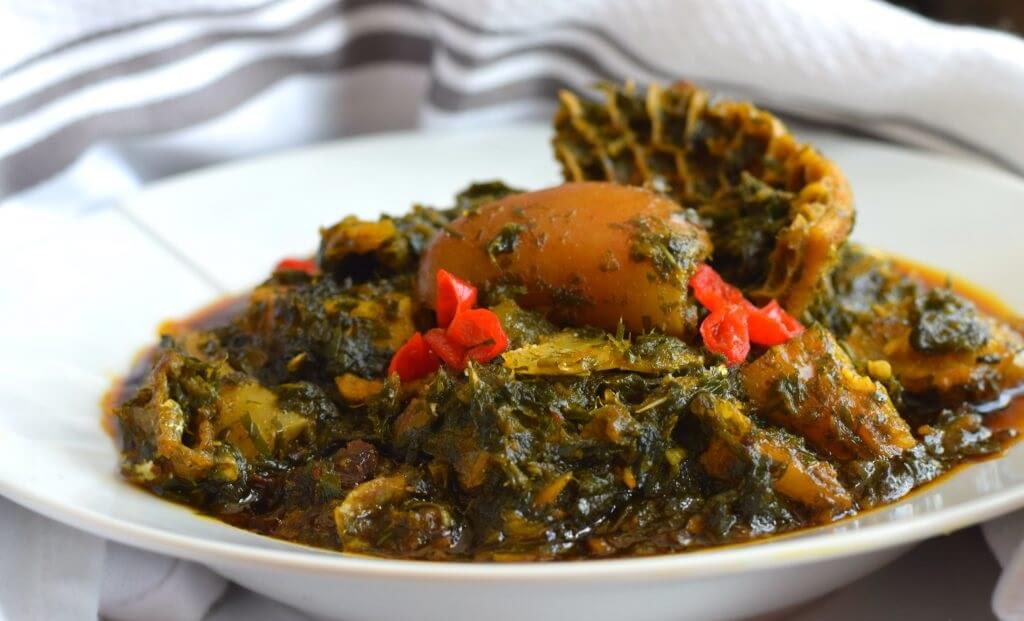- Ce sujet est vide.
- AuteurMessages
- avril 7, 2025 à 6:27 am #622827

Palm oil is an essential ingredient in many traditional dishes across West and Central Africa, with one of its most notable uses being in the preparation of Afang soup. Afang soup, a beloved dish in several African countries, particularly in Nigeria, is known for its rich flavor and nutritional value.
Palm oil not only contributes to the taste and texture of the soup but also plays a significant role in the local economies of palm oil-producing regions. This article explores the role of palm oil in Afang soup production and its impact on local economies.
1. Palm Oil as a Key Ingredient in Afang Soup
Palm oil is the foundation of Afang soup, contributing both to its distinct taste and rich color. The oil is used to sauté vegetables, flavor the broth, and create a smooth, rich base for the soup. In addition to its culinary importance, palm oil is also valued for its nutritional content, which includes a balance of saturated and unsaturated fats, vitamins A and E, and essential fatty acids.
These attributes make palm oil not only a flavorful ingredient but also one that adds health benefits to the soup, which is traditionally consumed with starchy sides like pounded yam, fufu, or rice. Its rich texture and deep color are a hallmark of Afang soup, making palm oil irreplaceable in this traditional dish.
2. Contribution to Local Economies through Palm Oil Production
The palm oil industry is a significant economic driver in many African countries, especially in regions where palm trees are grown. In countries like Nigeria, Ghana, and Cameroon, palm oil production forms the backbone of local economies, providing livelihoods for millions of smallholder farmers, processors, and traders.
The cultivation of oil palms offers opportunities for job creation, income generation, and rural development. Local economies benefit from the sale of fresh palm oil, both within national markets and for export to international markets.
This trade generates revenue for local governments, contributing to the overall economic growth of palm oil-producing regions. The production of palm oil for Afang soup, as well as other food products, is crucial in sustaining these local economies and ensuring food security for communities.
3. Support for Small-Scale Farmers and Local Businesses
The production of palm oil is primarily a small-scale industry in many African countries, with numerous local farmers growing oil palms and producing crude palm oil. Smallholder farmers play an essential role in meeting local demand for palm oil, including the production needed for traditional dishes like Afang soup.
By supporting small-scale farmers, the palm oil industry fosters local entrepreneurship, enhances food sovereignty, and reduces reliance on imported oils. Local processing mills and cooperatives are often established to process the palm fruit into oil, providing additional income streams for farmers.
The role of palm oil in Afang soup production, therefore, goes beyond its culinary importance; it is also intertwined with the livelihoods of rural communities.
4. Environmental and Sustainable Palm Oil Production
As the demand for palm oil increases, particularly for its use in traditional dishes like Afang soup, there is growing awareness of the environmental impact associated with palm oil production. Unsustainable farming practices, including deforestation and poor land management, can lead to soil degradation, biodiversity loss, and climate change.
However, there are ongoing efforts to promote sustainable palm oil production practices in Africa. These include supporting the development of sustainable farming techniques, promoting the certification of palm oil through sustainability initiatives, and encouraging the responsible use of land and resources.
By prioritizing sustainability, the palm oil industry can continue to support Afang soup production and local economies while minimizing environmental damage.
5. Palm Oil as a Cultural and Economic Staple
Palm oil is not just a commodity; it is a cultural staple in many African communities. Beyond its use in Afang soup, palm oil is integral to many traditional dishes and is also used in cosmetics, soaps, and medicinal applications. The widespread availability of palm oil in local markets supports cultural practices and maintains culinary traditions.
The economic importance of palm oil extends beyond its direct use in food; it also creates opportunities for trade, investment, and infrastructure development in rural areas. This cultural and economic significance makes palm oil a key driver of both local food traditions and broader economic growth.
In conclusion, palm oil plays a vital role in the production of Afang soup, contributing to its rich flavor, texture, and nutritional value. Beyond its culinary function, palm oil is a critical component of local economies in palm oil-producing regions.
It provides livelihoods for smallholder farmers, supports local businesses, and fosters economic development. However, it is essential to ensure that the production of palm oil remains sustainable to avoid environmental degradation.
By promoting sustainable practices and supporting local economies, palm oil can continue to be a key ingredient in Afang soup production while contributing to the cultural and economic wellbeing of many African communities.
Read Also: Sustainable Harvesting Practices for Wild Afang Leaf
- AuteurMessages
- Vous devez être connecté pour répondre à ce sujet.

